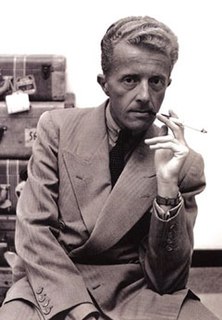A Quote by Miguel de Cervantes
Urgent necessity prompts many to do things, at the very thoughts of which they perhaps would start at other times.
Related Quotes
Between the uprightness of my conscience and the hardness of my lot, I know not how either to show respect to my feelings or to the times. The bitterness of my mind urges me at all hazards to speak what I think, whereas the necessity of the times prompts me, however unbecomingly, to keep silence. Good God! Which way shall I turn myself?
This is what writers mean when they say that the notion of cause involves the idea of necessity. If there be any meaning which confessedly belongs to the term necessity, it is unconditionalness. That which is necessary, that which must be, means that which will be, whatever supposition we may make in regard to all other things.
To hinder, besides, the farmer from selling his goods at all times to the best market, is evidently to sacrifice the ordinary laws of justice to an idea of public utility, to a sort of reasons of state; an act of legislative authority which ought to be exercised only, which can be pardoned only in cases of the most urgent necessity.
Because we don't know when we will die, we get to think of life as an inexhaustible well. Yet everything happens only a certain number of times, and a very small number really. How many more times will you remember a certain afternoon of your childhood, an afternoon that is so deeply a part of your being that you can't even conceive of your life without it? Perhaps four or five times more, perhaps not even that. How many more times will you watch the full moon rise? Perhaps 20. And yet it all seems limitless.
Who would know but ten years ago that kids would be texting each other all the time, that that would be one of their main forms of communication. And so many times, these kids know more about the technology than their parents. And so many times, we're putting kids in very adult situations and expecting them to behave like they're 40 years old.






































